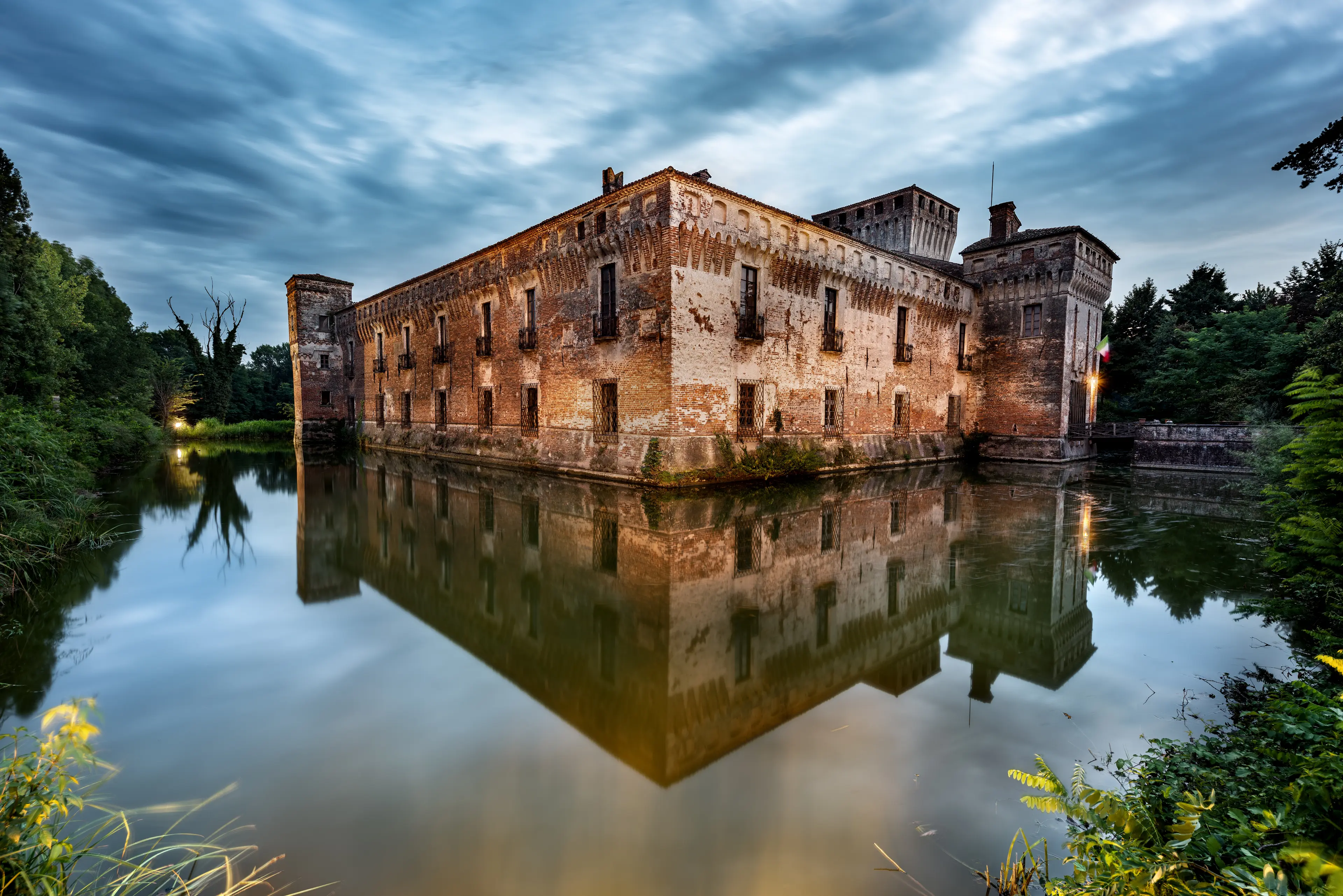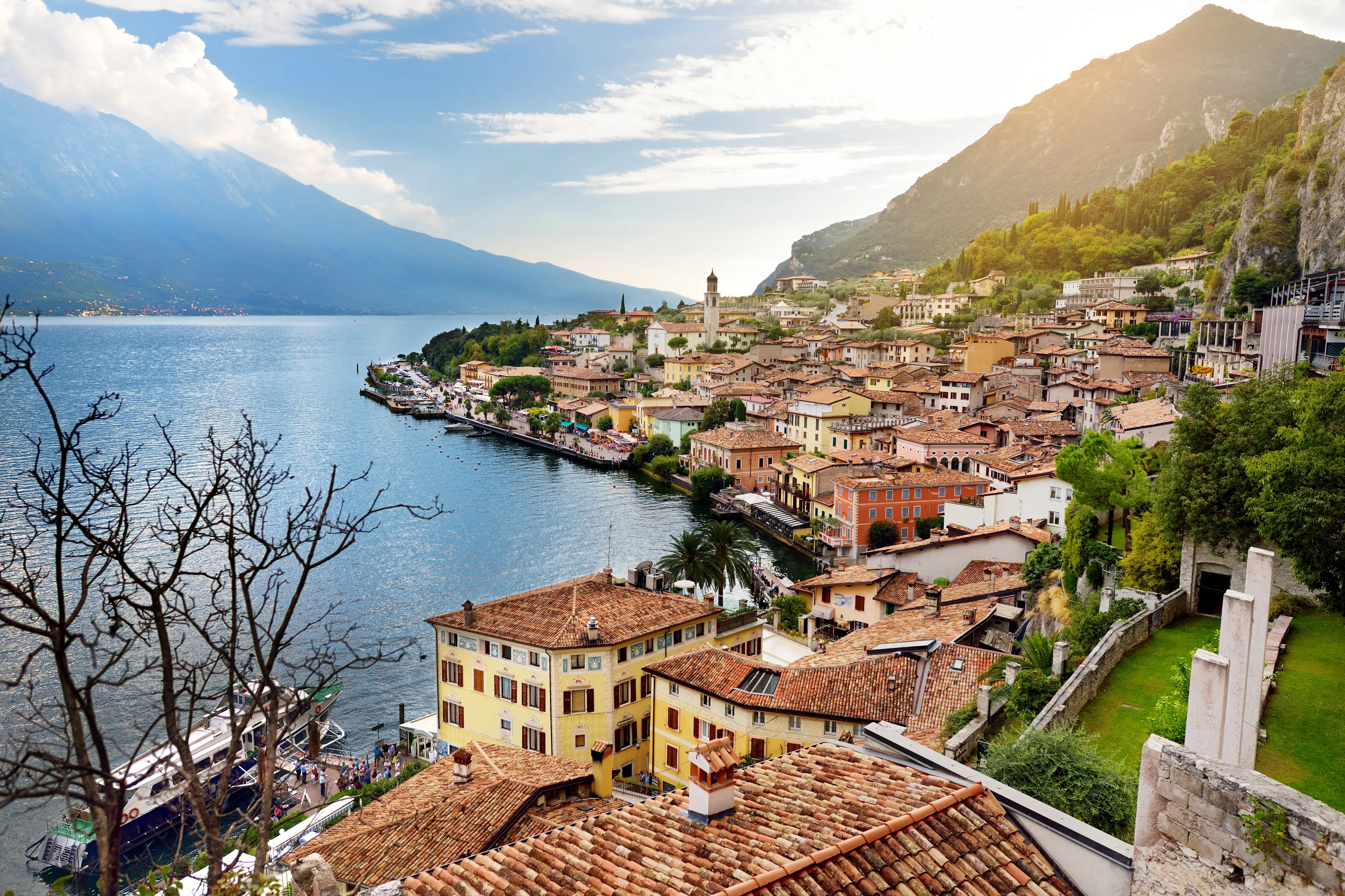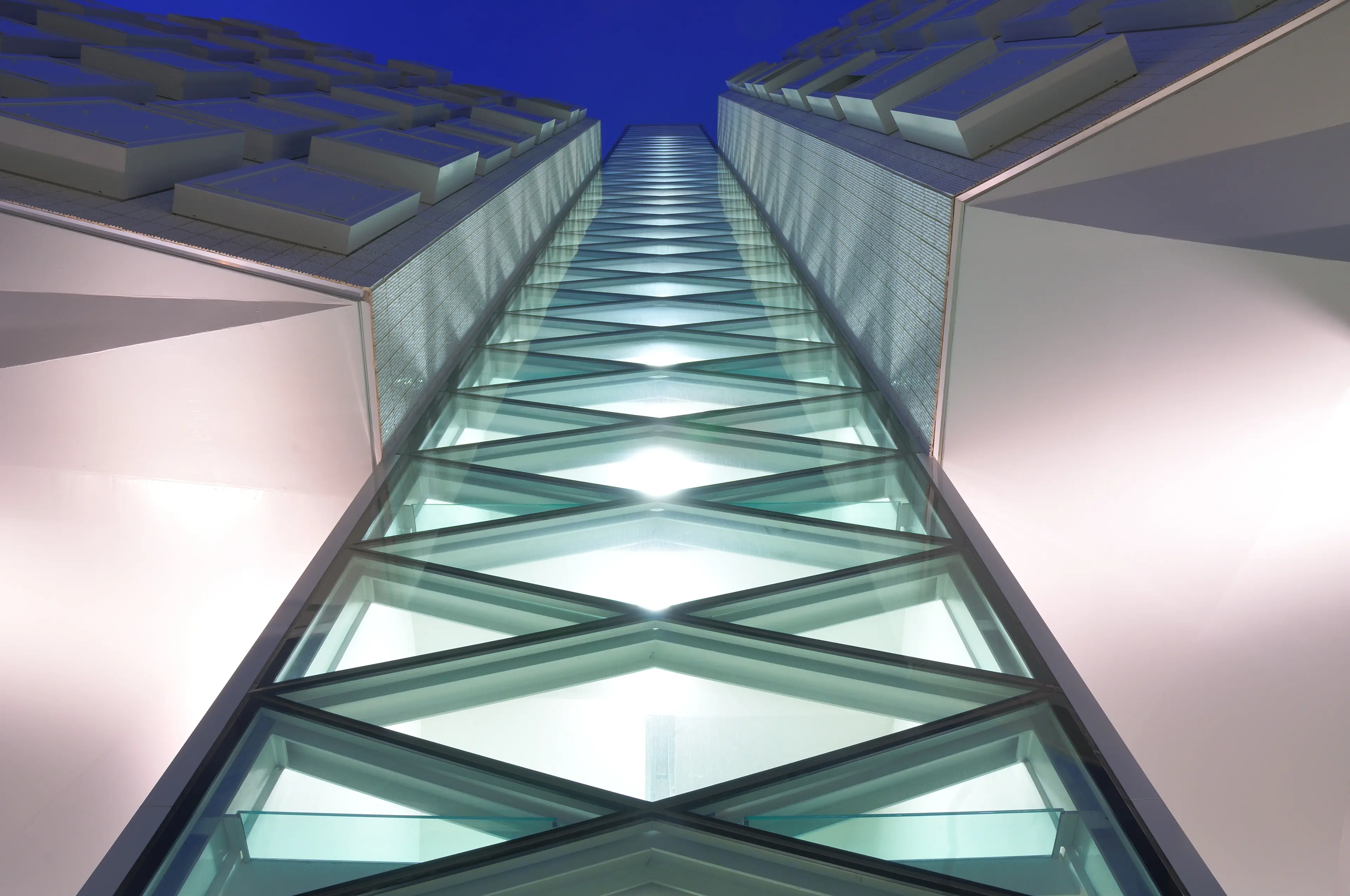2-Day Family Food, Wine, and Shopping Adventure in Brescia, Italy
Brescia, Italy
2 days
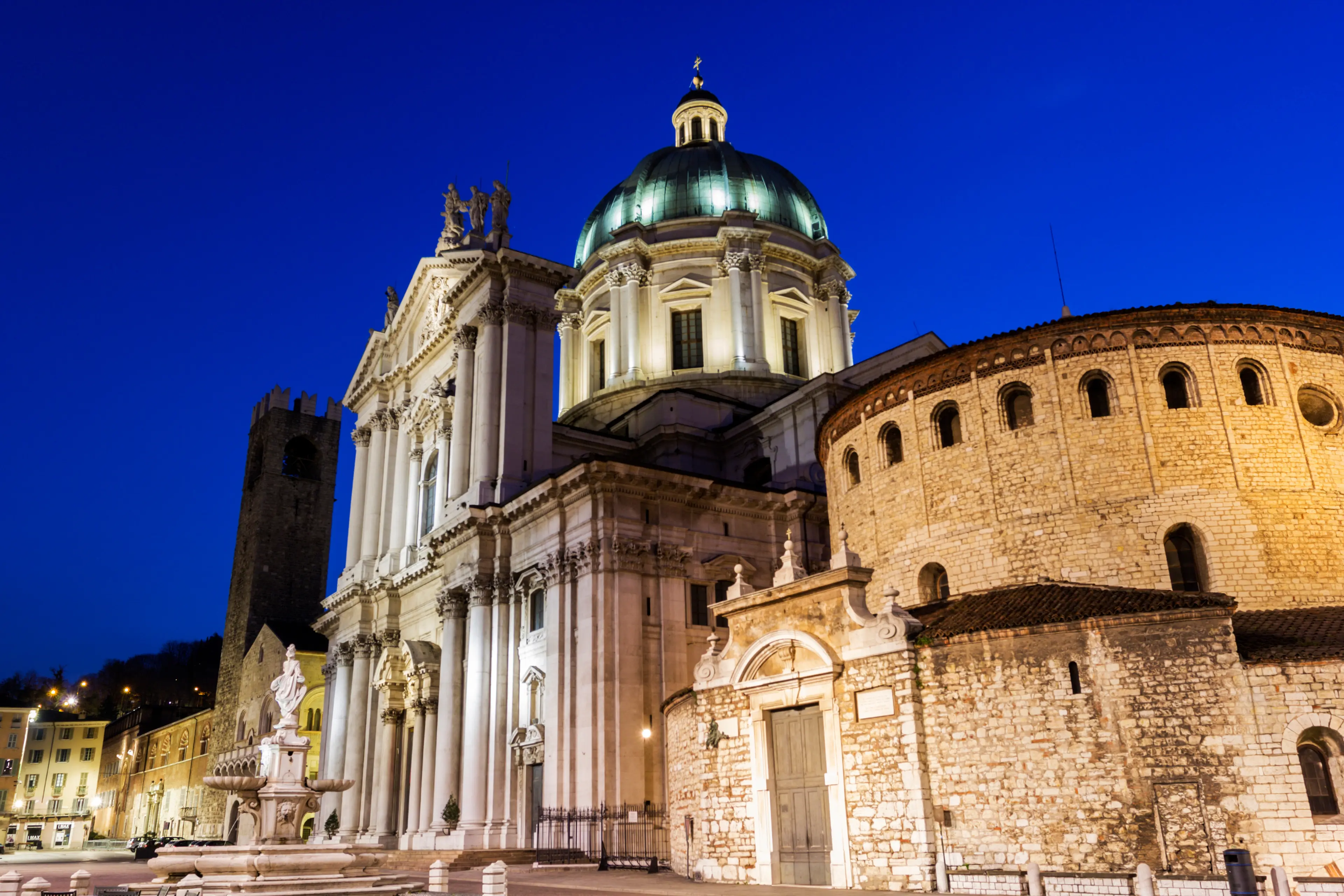
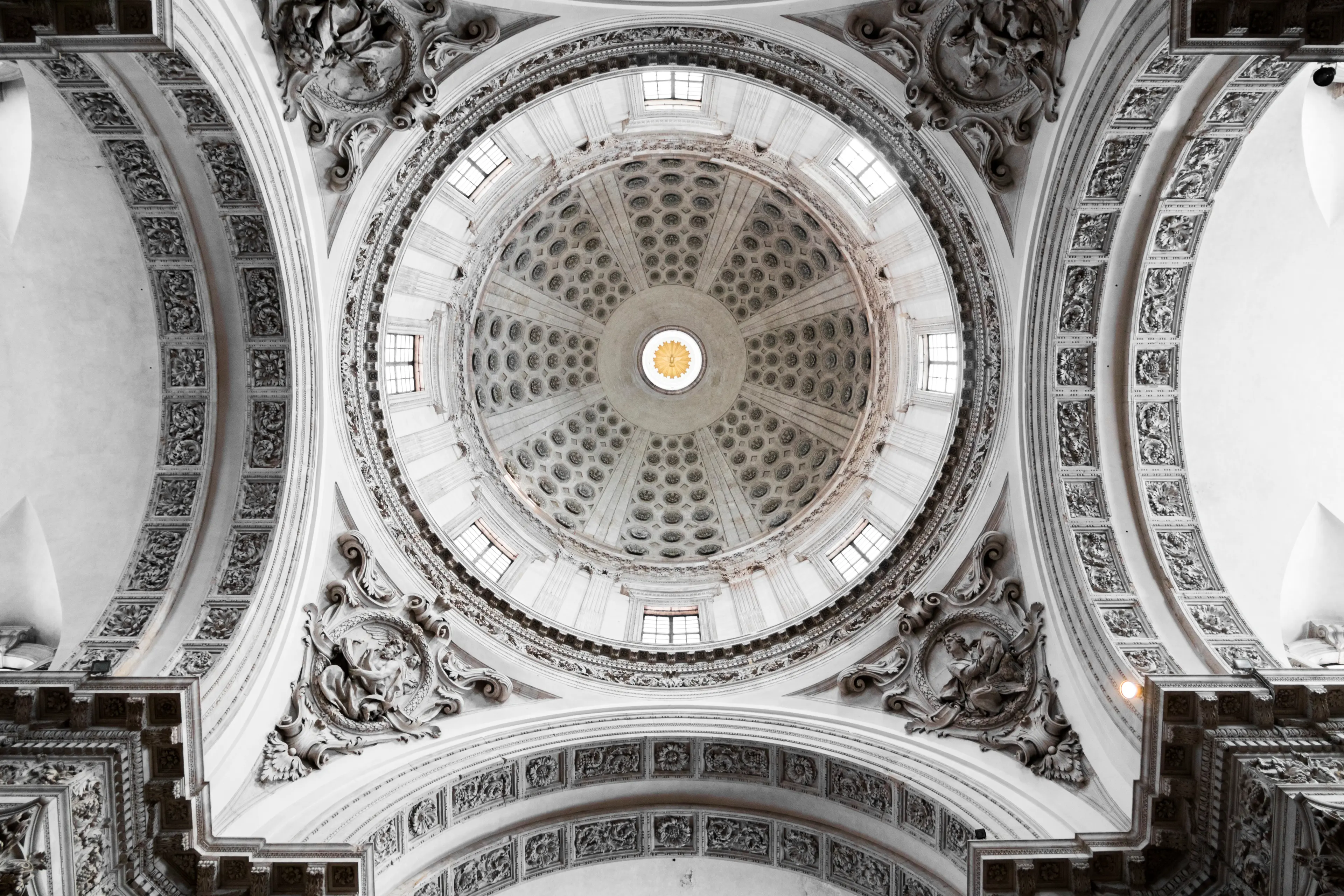
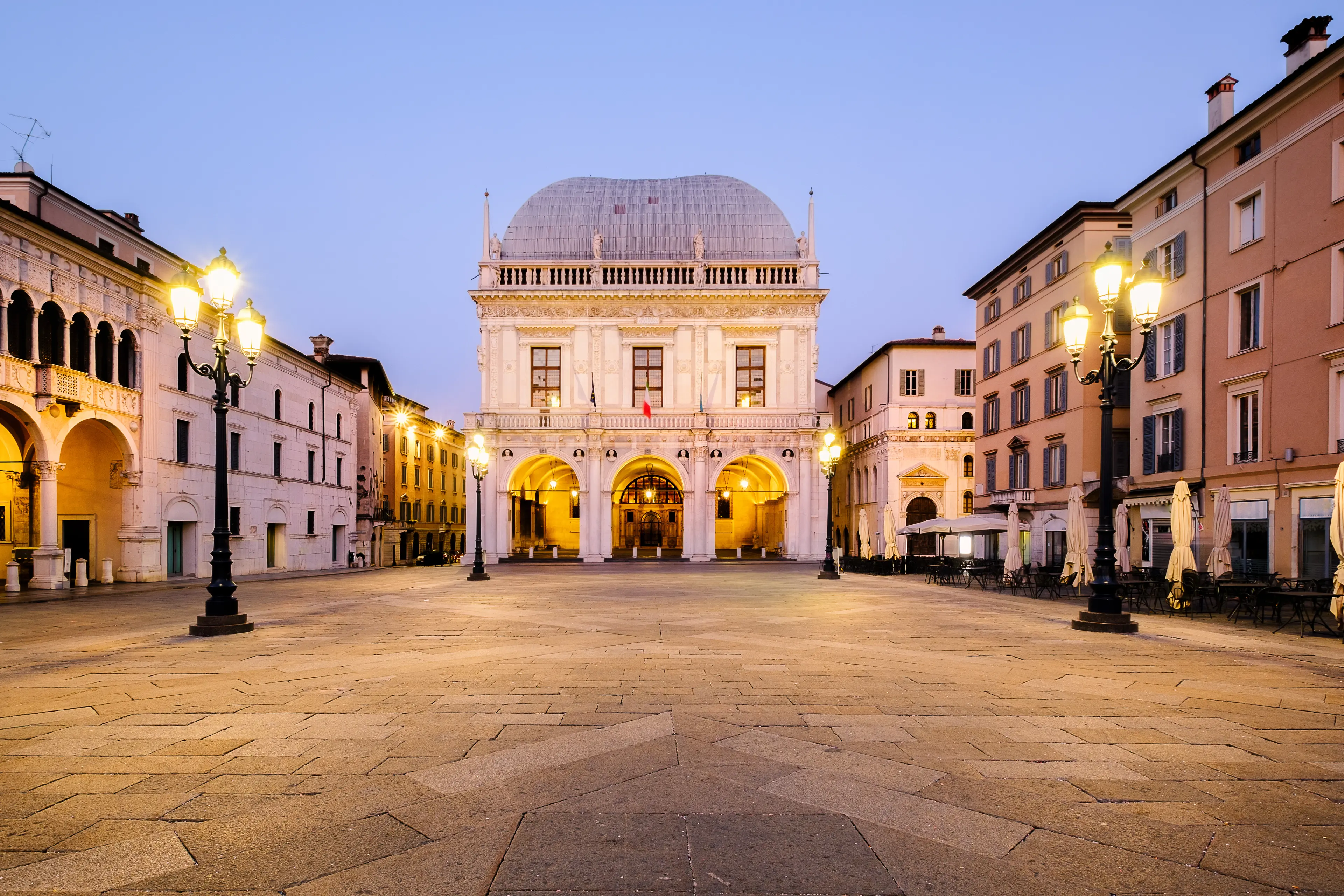
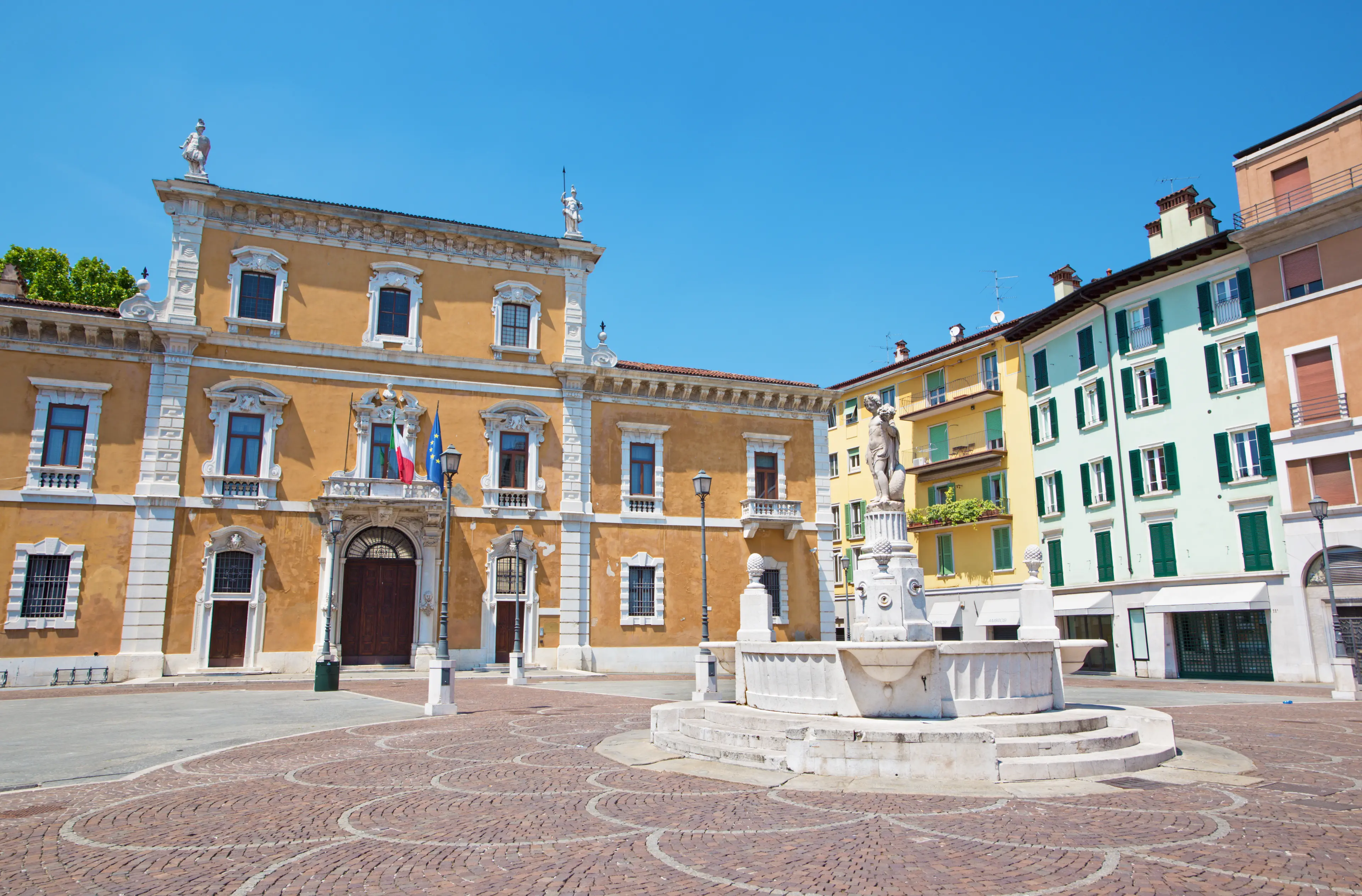
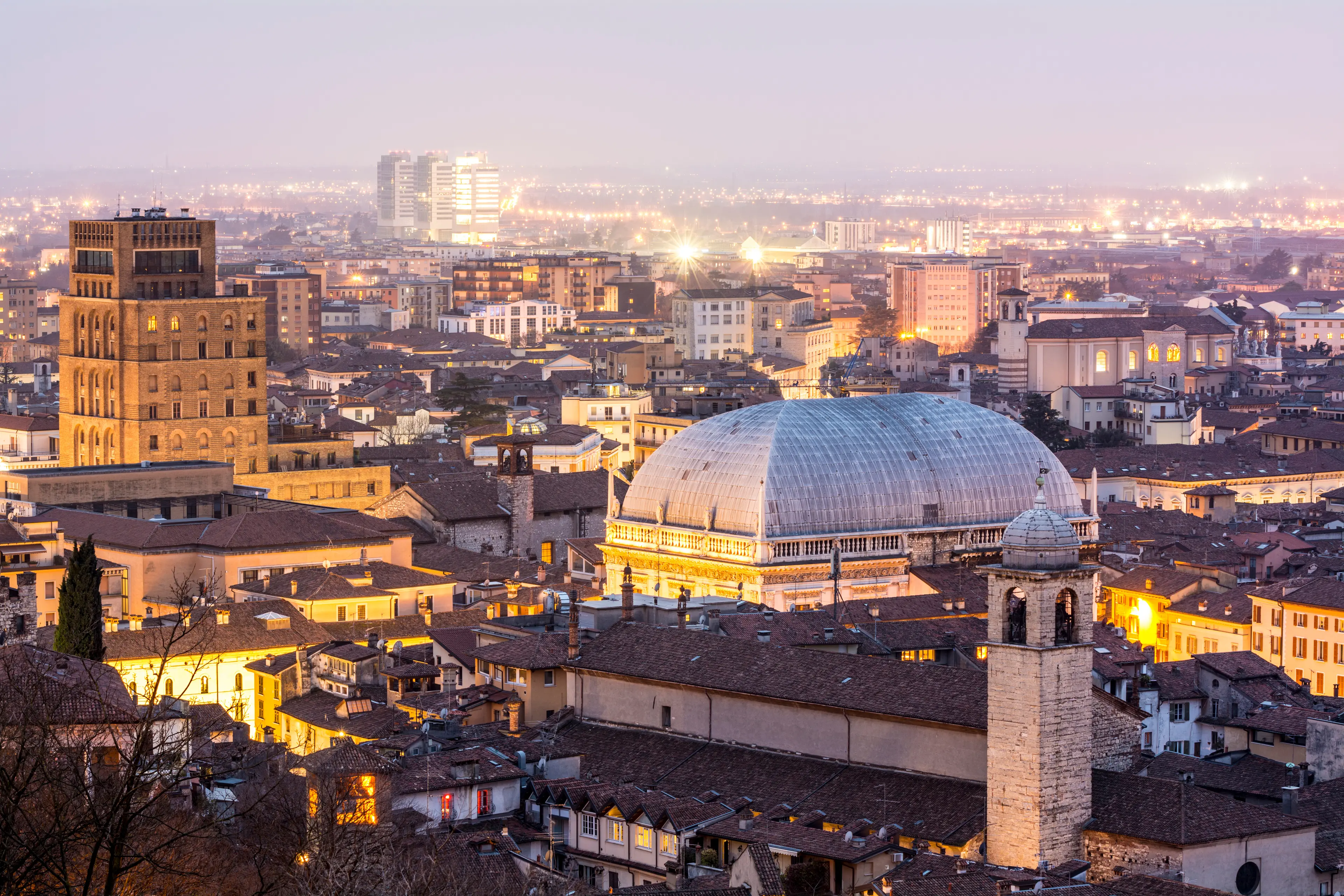
About Brescia, Italy
Discover the enchanting city of Brescia, Italy, nestled at the foot of the Alps. This hidden gem is rich in history, boasting Roman ruins, medieval squares, and Renaissance architecture. Visit the UNESCO World Heritage site, the Santa Giulia Museum, for a deep dive into Brescia's past. Marvel at the grandeur of the Brescia Cathedral and the imposing Brescia Castle. Enjoy a leisurely stroll through the charming Piazza della Loggia, lined with cafes and shops. Indulge in the region's culinary delights, featuring local cheeses, wines, and olive oil. Just a stone's throw away, you'll find the serene beauty of Lake Iseo and the Franciacorta wine region. Brescia, a perfect blend of history, culture, and gastronomy, awaits you.
2-Day Itinerary
Day 2
Historical Sites and Cultural Experiences
Morning
Begin your second day with a visit to the Brescia Castle, a medieval fortress offering panoramic views of the city. The castle also houses a museum showcasing the city's history and culture.
Lunch
Have lunch at a local osteria, where you can try osso buco, a traditional dish made with veal shanks cooked with vegetables, white wine, and broth.
Afternoon
Spend the afternoon at the Mille Miglia Museum, dedicated to the historic Italian car race. Afterwards, take a leisurely walk in a nearby park.
Dinner
For dinner, enjoy a meal at a local seafood restaurant. Brescia, despite being landlocked, offers excellent seafood dishes thanks to its proximity to the lakes.
Evening
End your trip with a visit to the Roman Theatre, an ancient amphitheater that hosts various performances. Enjoy a show under the stars to wrap up your Brescia experience.
Attractions in Itinerary (5)

1Piazza della Loggia
A beautiful Renaissance square surrounded by Venetian-style buildings and the Clock Tower.

2Brescia Castle
A medieval fortress located on the Cidneo Hill, offering panoramic views of the city.

3Mille Miglia Museum
A museum dedicated to the Mille Miglia, a historic endurance race that took place in Italy.
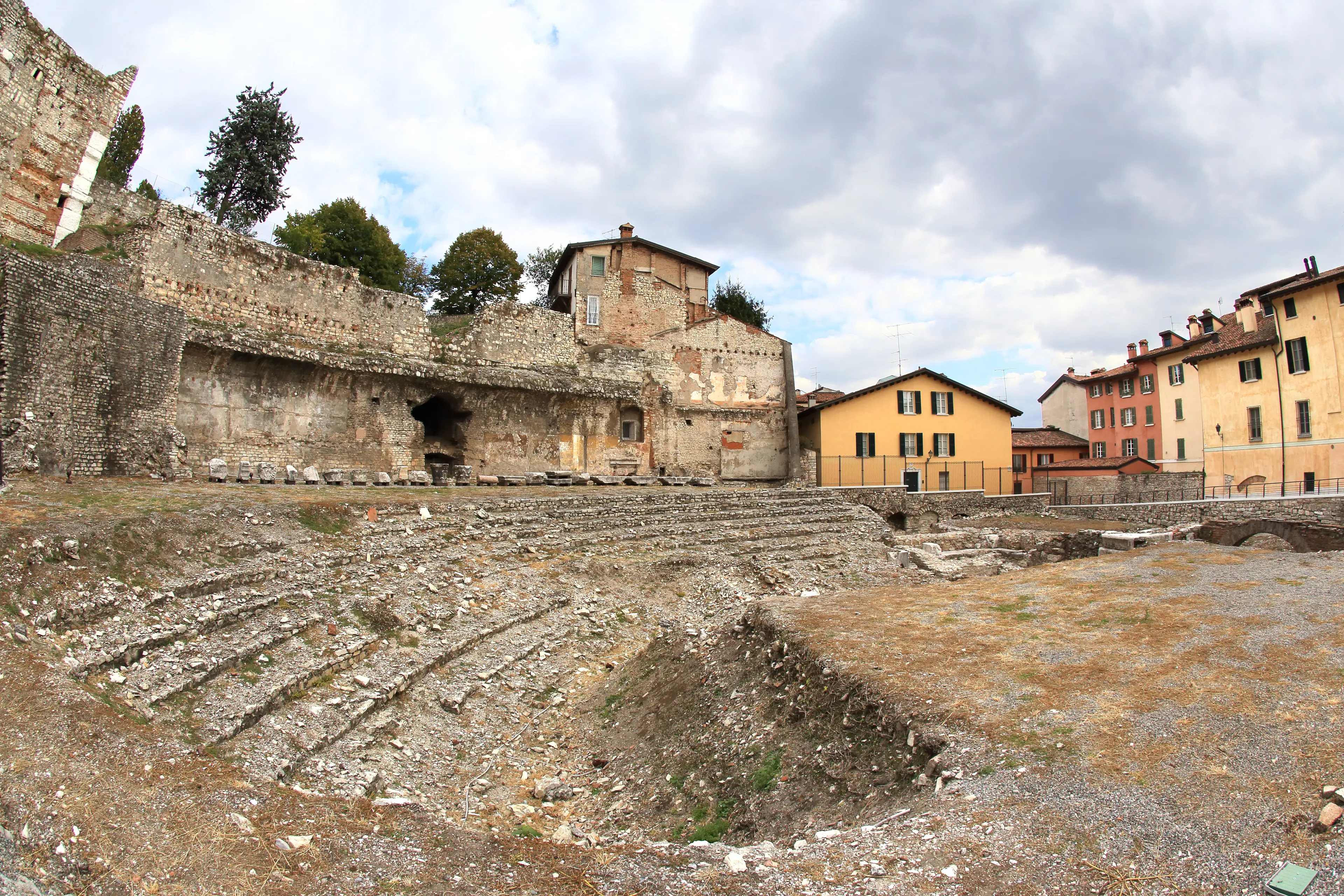
4Roman Theatre
The Roman Theatre in Brescia is an ancient monument dating back to the Roman Empire. It's a testament to the city's rich history and cultural heritage.

5Local Trattoria
A traditional Italian restaurant offering local cuisine
Local Food and Drinks (12)

Casoncelli alla Bresciana
A traditional pasta dish from Brescia, filled with a mixture of bread crumbs, parmesan cheese, garlic, parsley, nutmeg, and lemon zest.

Polenta Taragna
A hearty dish popular in Brescia, made with buckwheat flour and cornmeal, often served with melted cheese and butter.

Manzo all'Olio
A unique dish from Brescia, featuring beef slow-cooked in a mixture of oil, anchovies, and vegetables.

Spiedo Bresciano
A traditional dish from Brescia, consisting of various meats and vegetables skewered and slow-cooked over a fire.
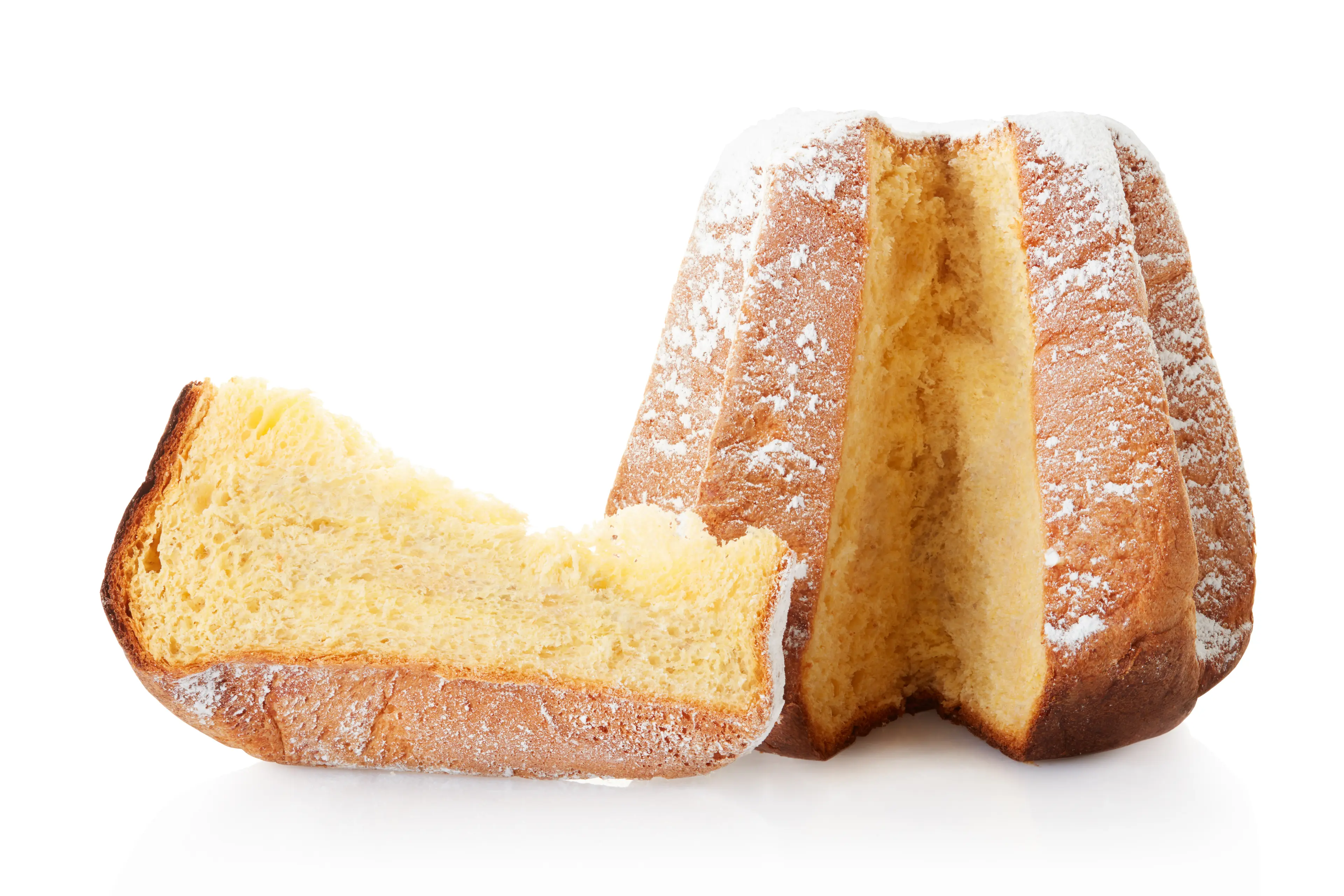
Pandoro
A sweet, golden cake that originated in Verona but is popular throughout the region, including Brescia. It's typically dusted with powdered sugar and served around Christmas.
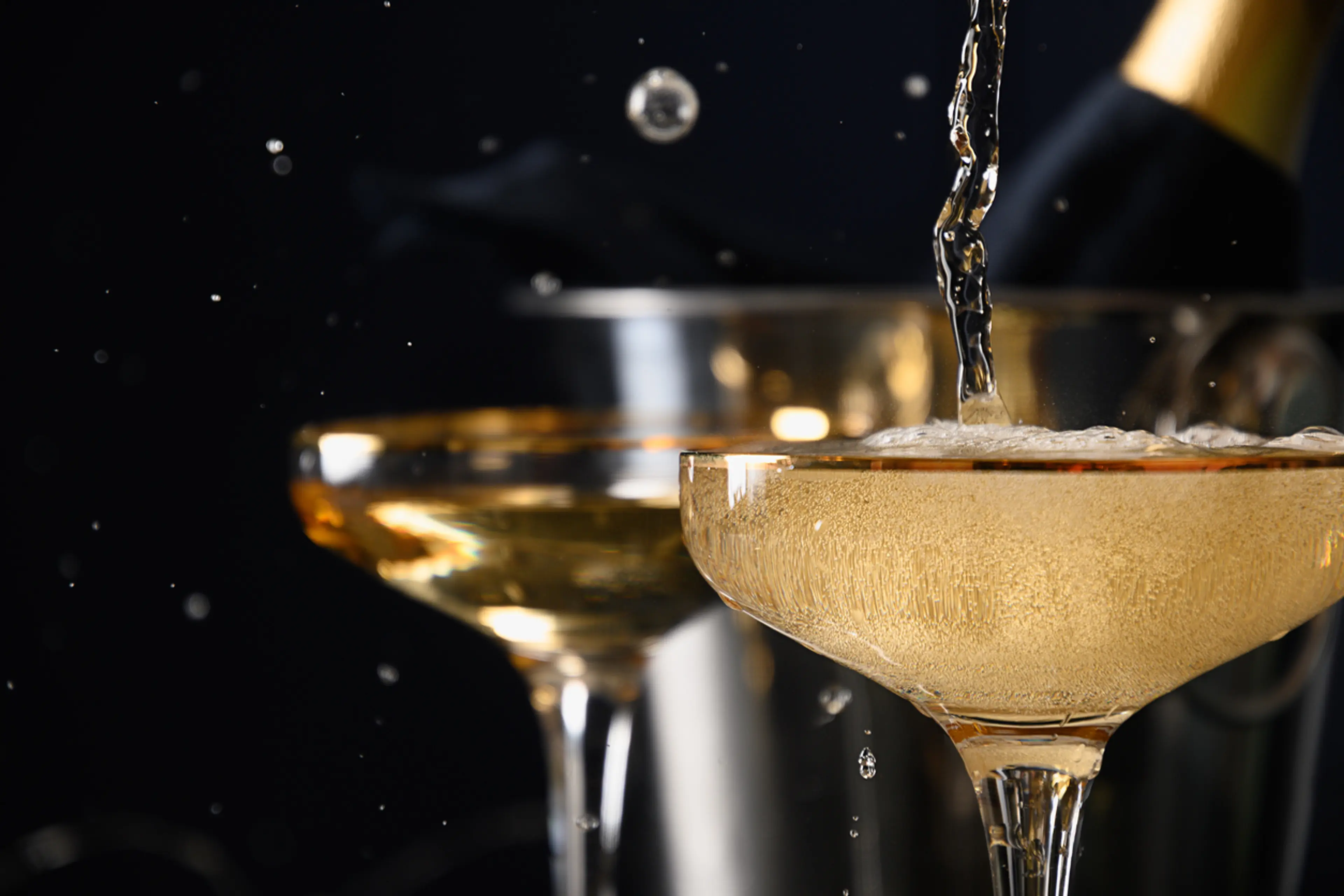
Franciacorta
A sparkling wine from the Franciacorta region near Brescia, made in the traditional method like Champagne.
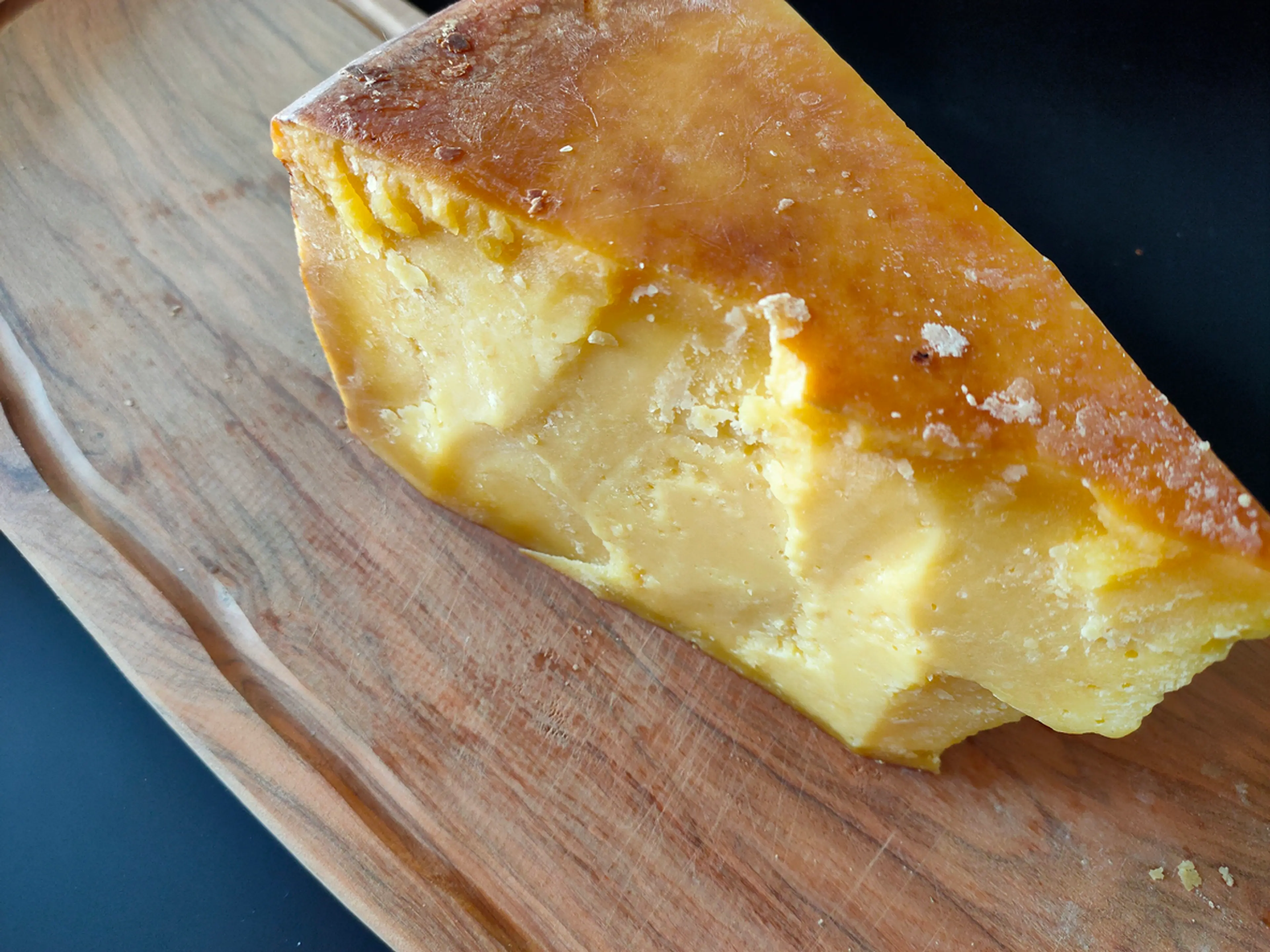
Bagoss
A hard, aged cheese from the Bagolino area near Brescia, known for its strong flavor and slightly grainy texture.
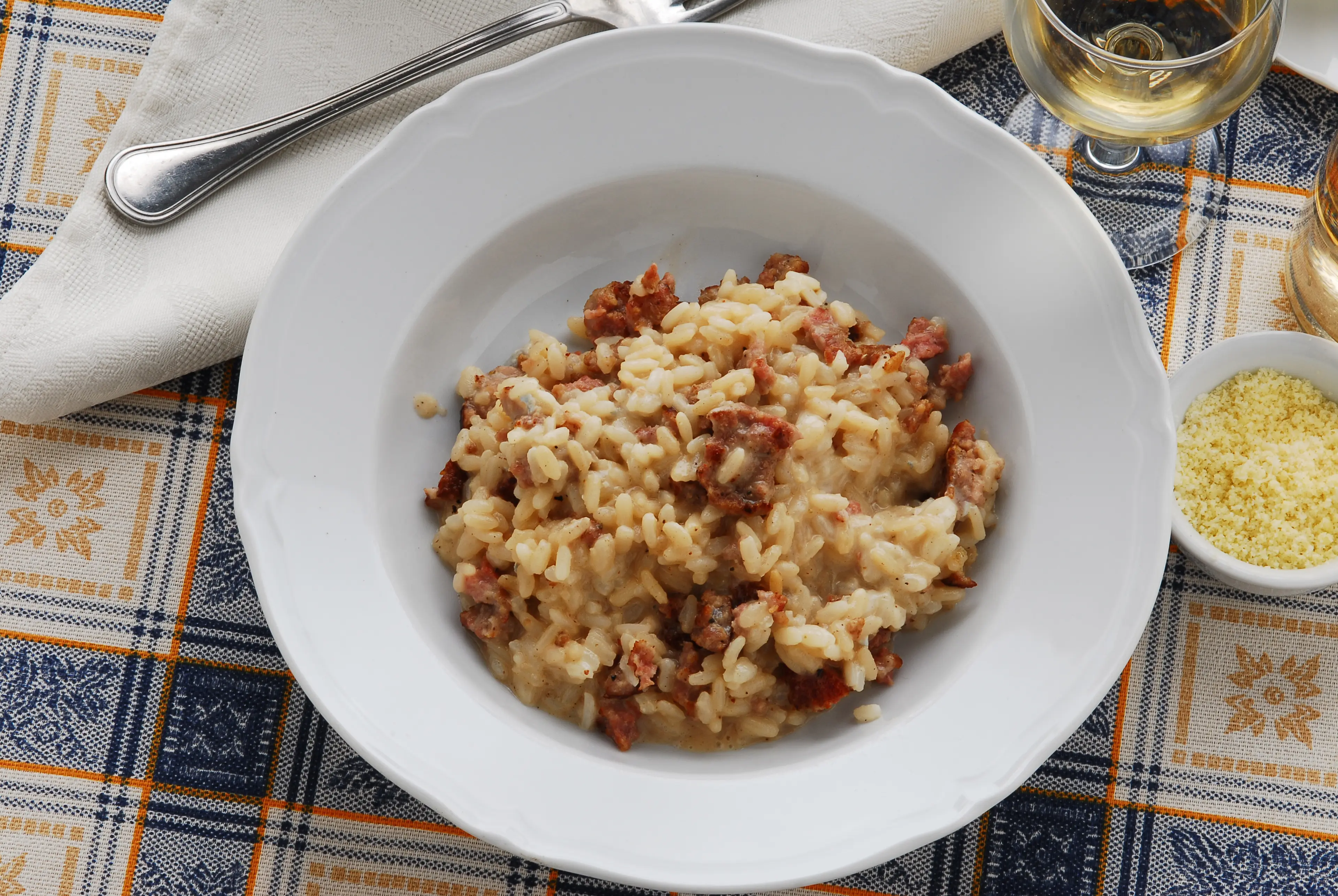
Risotto alla Pilota
A traditional risotto dish from Brescia, made with Vialone Nano rice and pork sausage.
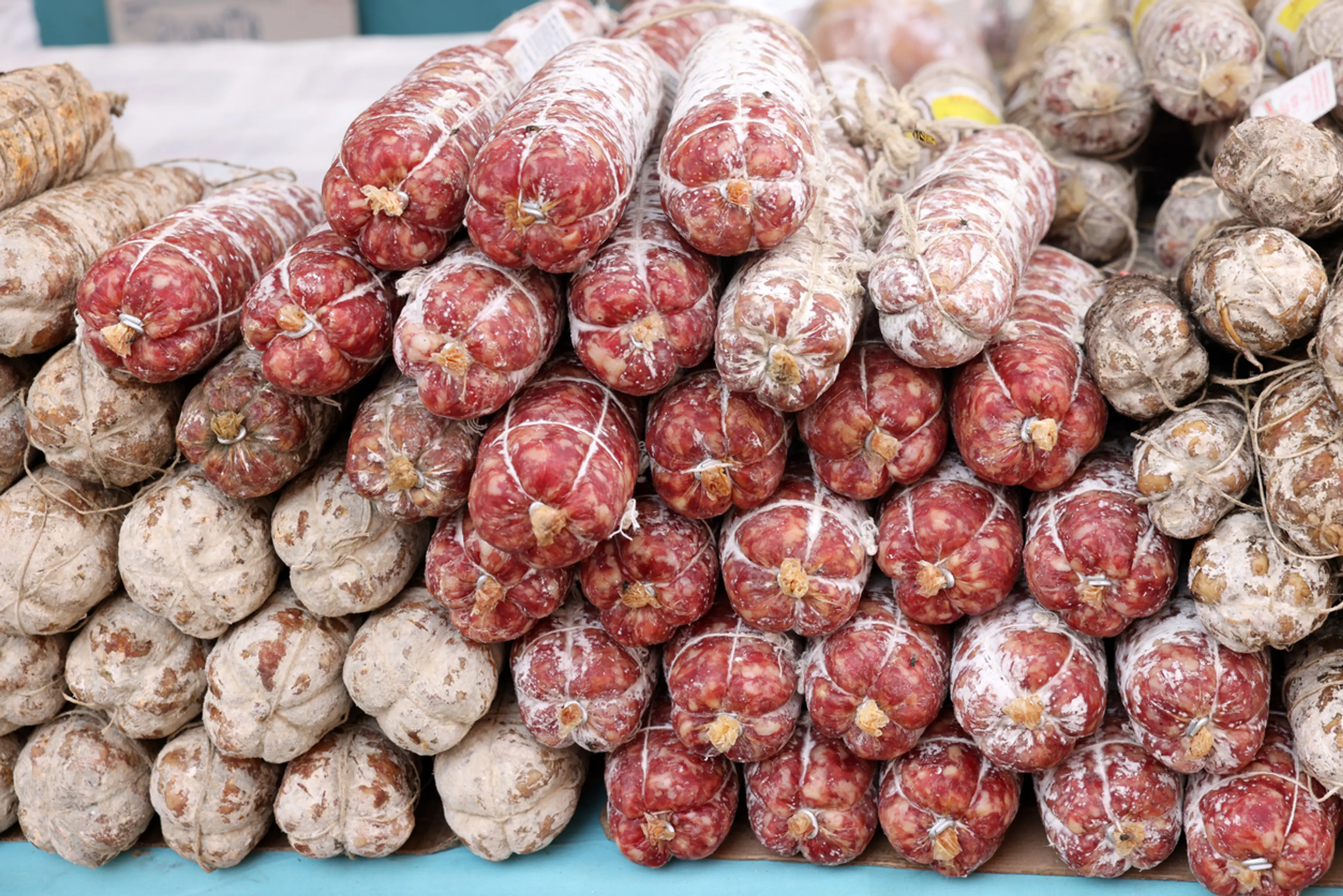
Salame Bresciano
A traditional salami from Brescia, made with pork and flavored with garlic and wine.
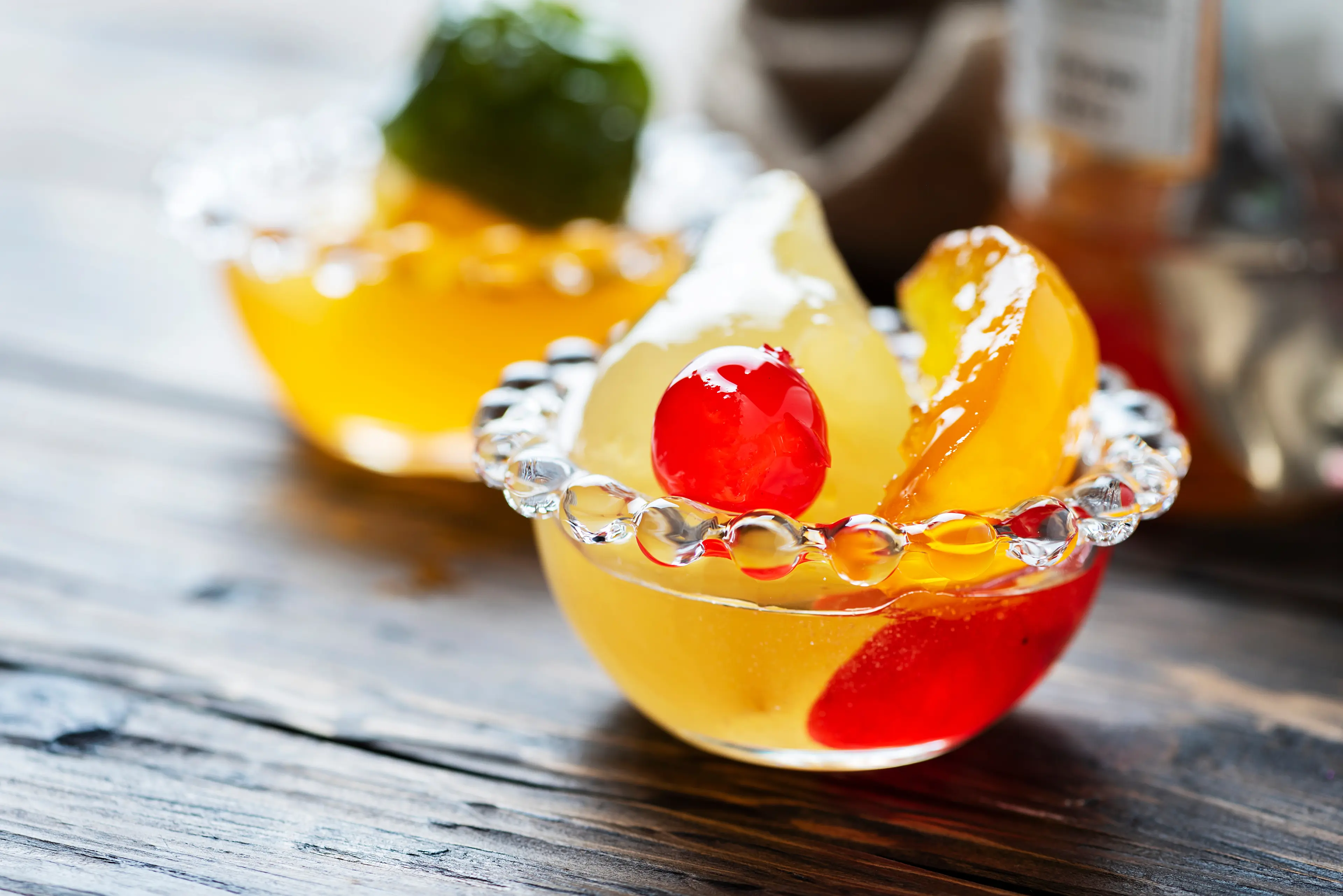
Mostarda di Cremona
A sweet and spicy condiment made with candied fruit and mustard syrup, popular in Brescia and the surrounding region.
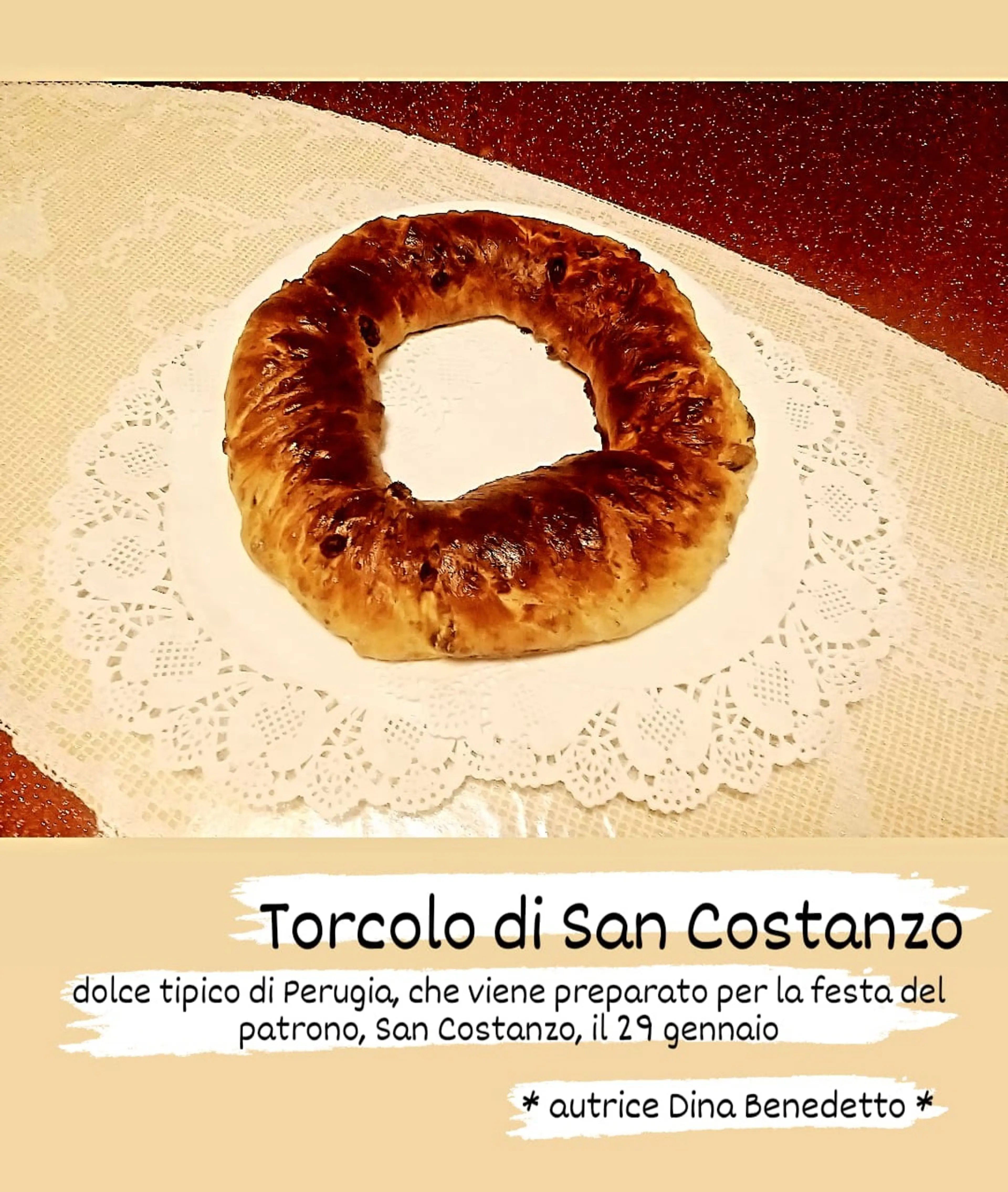
Torcolo di San Costanzo
A ring-shaped cake from the region around Brescia, flavored with anise and often served with a glass of sweet wine.
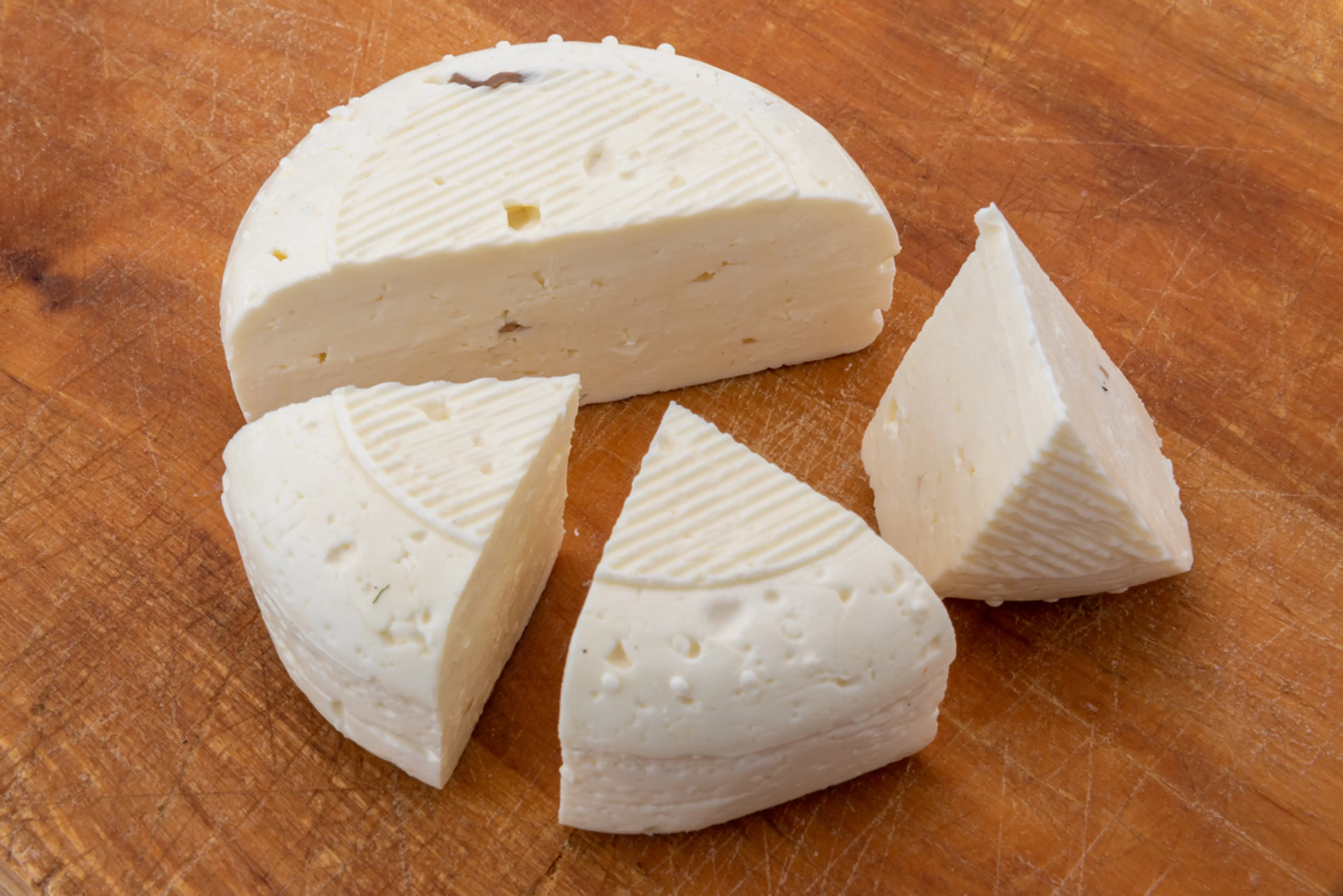
Robiola di Monte Isola
A soft, creamy cheese from Monte Isola, a lake island near Brescia, typically made with a mix of cow, goat, and sheep milk.
Best time to visit
The best time to visit Brescia, Italy is typically between April and June or September and October. During these periods, the weather is usually mild and pleasant, perfect for sightseeing and outdoor activities. The city is less crowded compared to the peak summer months of July and August, allowing tourists to explore at a leisurely pace. Additionally, these periods often coincide with local festivals and events, providing an authentic Italian cultural experience.
How to get around
Foot
Brescia is a compact city, making it easy to explore on foot. Many of the city's main attractions, such as the Roman ruins and the old town, are within walking distance of each other.
Public Bus
Brescia's public bus system is extensive and reliable, serving all parts of the city and its suburbs. Buses run frequently during the day, less so in the evenings and on Sundays. Tickets can be purchased at newsstands, tobacco shops, or vending machines at some bus stops.
Tram
Brescia has a single tram line that runs from the north to the south of the city, passing through the city center. It's a convenient way to travel between the main railway station and the city center.
Bicycle
Brescia is a bike-friendly city with numerous bike lanes and bike-sharing stations. The city's flat terrain makes it easy to get around by bike.
Car
While driving in Brescia is possible, it's not recommended due to the city's narrow streets and limited parking. However, car rental services are available if you wish to explore the surrounding region.
Taxi
Taxis are readily available in Brescia, although they can be expensive. They can be hailed on the street, booked by phone, or picked up from designated taxi stands.
Ridesharing
Ridesharing services, such as Uber, are available in Brescia. This can be a convenient option for getting around, especially if you're traveling in a group or have a lot of luggage.
Train
Brescia's main train station offers connections to other Italian cities, including Milan, Verona, and Venice. There's also a smaller station, Brescia Scalo, for regional trains.
Airport Shuttle
For those arriving or departing from Brescia Airport, there are shuttle services that run between the airport and the city center.
Important information
Currency€ EUR
Time zoneUTC+1
Driving sideRight
Emergency phoneAmbulance: 112, 118; Fire: 112, 115; Police: 112, 113;
Drinking waterYes, but some opt for bottled water
Power sockets
Voltage230 V
Things to know about Brescia, Italy as a first time visitor
1
Brescia is located in the Lombardy region of Northern Italy, between Milan and Verona.
2
The city is well-connected by train and bus services, making it easy to explore the surrounding region.
3
Brescia has a Mediterranean climate, with hot, dry summers and mild, wet winters. Average summer temperatures range from 75-85°F (24-29°C) and winter temperatures range from 32-45°F (0-7°C).
4
The official language is Italian, but English is commonly spoken in tourist areas and hotels.
5
The local currency is the Euro (€). Credit cards are widely accepted, but it's a good idea to carry some cash for smaller establishments or street vendors.
6
Brescia is in the Central European Time Zone (CET), which is 1 hour ahead of Greenwich Mean Time (GMT+1).
7
Tipping is not mandatory in Italy, but it is customary to leave a small amount (around 10%) if you are satisfied with the service.
8
Brescia is known for its rich history and is home to several UNESCO World Heritage Sites.
9
The city is also famous for its culinary scene, with local specialties including casoncelli (stuffed pasta) and polenta.
10
Brescia has a vibrant nightlife, with numerous bars, clubs, and live music venues.
11
The city is very walkable, but there is also an efficient public transportation system, including buses and a metro.
12
Brescia hosts several festivals and events throughout the year, including the Mille Miglia, a historic car race.
13
The city is generally safe, but like any tourist destination, it's important to be aware of your surroundings and keep an eye on your belongings.
14
Brescia has a range of accommodation options, from luxury hotels to budget-friendly hostels.
15
The city is not as crowded as other Italian tourist destinations, offering a more relaxed and authentic experience.
16
Brescia has a variety of shopping options, from high-end boutiques to local markets.
17
The city has a strong cultural scene, with numerous museums, galleries, and theaters.
18
Brescia is surrounded by beautiful natural landscapes, including Lake Garda and the Alps, which are perfect for outdoor activities.
19
The city has a strong coffee culture, and you'll find many cafes serving high-quality espresso.
20
Brescia is also known for its wine, particularly Franciacorta, a sparkling wine produced in the region.
Basic Italian to know as a first time visitor
English phrase | Native phrase | Pronunciation | When to use it |
|---|---|---|---|
Hello | Ciao | Chow | Greeting someone |
Goodbye | Arrivederci | Ah-ree-veh-der-chee | Leaving someone |
Please | Per favore | Pehr fah-voh-reh | Making a request |
Thank you | Grazie | Graht-see-eh | Expressing gratitude |
You're welcome | Prego | Preh-go | Responding to thank you |
Excuse me | Scusa | Skoo-sah | Getting someone's attention |
Yes | Sì | See | Agreeing or confirming |
No | No | No | Disagreeing or denying |
I don't understand | Non capisco | Non ka-pee-sko | Confusion or misunderstanding |
Do you speak English? | Parli inglese? | Par-lee in-gle-seh | Finding someone who speaks your language |
I need help | Ho bisogno di aiuto | Oh bee-zoh-nyoh dee ah-yoo-toh | In need of assistance |
Where is the bathroom? | Dove è il bagno? | Doh-veh eh eel bahn-yo | Looking for the bathroom |
How much does it cost? | Quanto costa? | Kwan-toh kos-ta | Inquiring about price |
I would like to order | Vorrei ordinare | Voh-rey or-dee-nar-eh | Ordering food or drink |
Water | Acqua | Ah-kwah | Ordering water |
Beer | Birra | Beer-rah | Ordering beer |
Wine | Vino | Vee-no | Ordering wine |
Check, please | Il conto, per favore | Eel kon-toh, pehr fah-voh-reh | Asking for the bill |
Where is...? | Dove è...? | Doh-veh eh...? | Asking for directions |
Help! | Aiuto! | Ah-yoo-toh | In an emergency |
Packing List
Clothing
Underwear
Socks
T-shirts
Pants/Jeans
Comfortable walking shoes
Sleepwear
Light jacket or sweater
Swimwear (if applicable)
Sunglasses
Hat for sun protection
Toiletries
Toothbrush and toothpaste
Deodorant
Shampoo and conditioner
Body wash or soap
Razor and shaving cream
Makeup and makeup remover
Sunscreen
Hand sanitizer
Prescription medications
First-aid kit (band-aids, antiseptic wipes, tweezers)
Travel documents and essentials
Passport/ID
Flight tickets
Hotel booking confirmation
Travel insurance documents
Credit and debit cards
Cash in local currency
Emergency contacts and addresses
Maps and guidebooks
Electronics and gadgets
Smartphone
Charger and adapter
Headphones
Camera
Laptop or tablet (if necessary)
Portable power bank
Miscellaneous items
Snacks
Water bottle
Travel pillow and blanket
Books or e-books for entertainment
Travel-size laundry detergent
Ziplock bags for organization
Umbrella or raincoat
Weather Conditions
Brescia, located in the Lombardy region of Italy, experiences a humid subtropical climate. This means that you can expect hot, humid summers and cold, damp winters. If you're planning to visit Brescia during the summer months, typically between June and August, be prepared for high temperatures that can reach up to 86°F (30°C). It's advisable to pack lightweight, breathable clothing, a hat, and sunscreen to protect yourself from the intense sun. Also, remember to stay hydrated, especially when sightseeing. On the other hand, if you're visiting during the winter months, from December to February, temperatures can drop to around 32°F (0°C). It's essential to pack warm clothing, including a heavy coat, scarves, gloves, and hats. Snowfall is not uncommon during this period, so waterproof shoes would be a wise addition to your luggage. The shoulder seasons of spring (March to May) and autumn (September to November) offer milder weather, with temperatures ranging from 50°F (10°C) to 68°F (20°C). These periods can be an excellent time to visit as the city is less crowded, and the weather is comfortable for outdoor activities. However, these seasons can also be quite rainy, so don't forget to pack an umbrella or raincoat. Regardless of when you visit, it's always a good idea to check the local weather forecast before your trip to Brescia. This will help you pack appropriately and plan your activities accordingly. Enjoy your trip!
| Month | Hi / Lo (°C) | Weather Overview |
|---|---|---|
January | 8° / -1° | January is the coldest month in Brescia, with temperatures often dropping below freezing. It's a good time to visit if you enjoy winter sports or prefer less crowded tourist spots. |
February | 11° / 0° | February is still quite cold, but temperatures start to rise slightly. It's a quiet time to visit, perfect for those who want to avoid crowds. |
March | 16° / 3° | March sees the beginning of spring, with temperatures starting to warm up. It's a great time to visit for outdoor activities. |
April | 20° / 7° | April is a pleasant month with moderate temperatures. It's an excellent time to explore the city and its surroundings. |
May | 25° / 11° | May brings warm temperatures and the city starts to get busier with tourists. It's a great time to visit for outdoor activities and sightseeing. |
June | 29° / 15° | June is the start of summer with high temperatures. It's a popular time for tourists, so expect some crowds. |
July | 32° / 18° | July is the hottest month in Brescia, with temperatures often exceeding 30 degrees. It's a great time to visit if you enjoy hot weather, but be prepared for the heat. |
August | 32° / 18° | August is equally hot as July, with high temperatures and sunny days. It's a great time to visit for beach and water activities. |
September | 26° / 14° | September sees the start of autumn, with temperatures starting to cool down. It's a great time to visit for those who prefer milder weather. |
October | 20° / 9° | October is a pleasant month with moderate temperatures. It's an excellent time to explore the city and its surroundings. |
November | 14° / 4° | November is a cooler month, with temperatures dropping. It's a quieter time to visit, perfect for those who want to avoid crowds. |
December | 9° / 0° | December is a cold month, with temperatures often dropping below freezing. It's a good time to visit if you enjoy winter sports or prefer less crowded tourist spots. |
Did you know?
Places near by Brescia, Italy

Verona
A city famous for being the setting of Shakespeare's 'Romeo and Juliet'.

Lake Garda
Italy's largest lake, offering beautiful views and water sports.

Milan
Known for its high-end restaurants and shops, Milan is the global capital of fashion and design.

Venice
A city built on more than 100 small islands in a lagoon in the Adriatic Sea.

Bergamo
A city in the alpine Lombardy region of northern Italy, known for its Old Town and Venetian walls.

Parma
A university city in Italy's Emilia-Romagna region, famed for Parmesan cheese and Parma ham.

Modena
Known for its balsamic vinegar, opera heritage, and Ferrari and Lamborghini sports cars.

Padua
A city in Northern Italy’s Veneto region, known for the frescoes by Giotto in its Scrovegni Chapel.

Bologna
The lively, historic capital of the Emilia-Romagna region, in northern Italy.

Genoa
A port city and the capital of northwest Italy's Liguria region.
